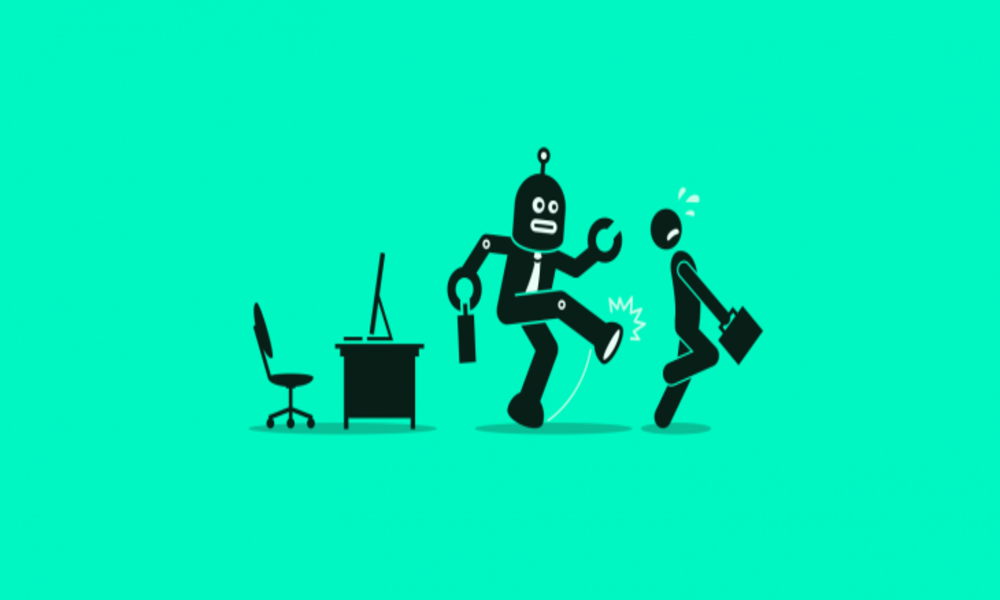
KAT BLESIE – SEPTEMBER 14, 2018
Daniel Acland is a behavioral economist and Assistant Professor of Practice in Public Policy at UC Berkeley’s Goldman School of Public Policy. BER staff writer Kat Blesie sat down with Professor Acland on September 14, 2018 for the following interview.
Kat Blesie: I am here with Professor Daniel Acland who has just published a piece on confirmation bias among voters. Thanks for meeting with me, Professor Acland. Something that struck me about that piece, Professor Acland, was your conclusion that the confirmation bias you saw in your research was less so a matter of “I’m a republican so I seek out information that affirms my republican beliefs,” and more so a matter of “I feel this way about the government, I do or do not trust the government, and so I seek out information that affirms my views on government.”
Daniel Acland: We were a bit surprised by that result. We went into that project with the idea that we would ask people a series of what I refer to as ‘polarity variables’ – where do you stand on these different spectra – and you always ask people their party identification, and their liberal or conservative views, and I just assumed, and I think my coauthor Amy Lerman assumed, that we would find this stereotypical divide with conservatives/republicans not liking government and liberals/democrats liking government. In retrospect, it’s not so surprising to me that this biased attitude formation about public service did not show up along political dimensions, because – and I’m not an expert in what I’m about to say – my perception is that this fundamental orientation towards public vs. private service has been promoted from the right, but it has reached across society and become imbedded in our culture, left and right, to the point where it’s almost beyond politics.
KB: Would you say it’s a sort of a hyper consensus we’ve created?
DA: Well, think about gay marriage. People on the right in this country have been, in recent memory, vehemently opposed to gay marriage, but I would conjecture if you could come back in 10, or 20, or 30 years, everybody will take it for granted, because the left, in terms of the politics, created a change in the culture. A change in policy, yes, but more to the point a change in culture, and that’s something that’s just going to sweep across the political spectrum. Along these lines, the right has promoted this idea that government is inefficient, and I think what’s happened is that that has just become a cultural assumption, whether it’s true or not.
KB: Do you think you would have found these same results 10 years ago?
DA: I don’t know. In some sense, if what I’ve just said is true, then your question is ‘when did it happen?’ I can tell you when it started happening: it started happening in 1964, when Barry Goldwater lost the 1964 presidential election, a whole lot of conservative intellectuals got together and started talking about how they could actually create a sort of intellectual shift – maybe revolution is too strong of a word – and they founded a number of think tanks, and they began to get to work on policy analysis and policy design. And those are the people that really informed Ronald Reagan’s campaign, and administration, and under Reagan a lot of their ideas started to take hold, and have continued to over time. So this is a very long process, that started at very high intellectual levels, with very smart people who are not just political hacks, and it has seeped down into our culture, this distrust in government, this dislike of big government – to the point where you had Bill Clinton saying this is the end of big government. Well, Democrats historically have thought of themselves as the party of big government – it’s not really a question of big or small but a question of effective or not effective, and everybody seems to have decided that big government is not effective.
KB: You’ve also published in great depth about ends paternalism and means paternalism. I’m still somewhat unclear about the distinction between the two – could you elaborate a little here?
DA: Right. And that’s kind of the point of the paper! The idea that some philosophers have is that – well, let’s just start with the basics. If you think about utility maximization, you can think about the specific consumption goods that go into the utility function as being, in some sense, means, towards achieving some goal, and the goal might be “I buy skis, so I can have the experience of skiing, “I buy books, because I want to have the experience of reading”, “I invest in retirement account in order to have a better retirement”, “I eat healthy food in order to have better health later in life”. The goal – the ends – is to have better health later in life, or to have a good retirement, or to read a good book, or to have a cool skiing experience. The means by which you pursue those ends include things like – how much money to I save for my retirement? Do I actually successfully eat healthy food? Or do I just tell myself over and over again that I’m going to eat healthy food and never do it? Now, with skiing, you sort of would expect that if you know anything about skiing, you’re going to buy some halfway decent skis and you’re going to go to a decent ski resort or whatever you can afford and you’re going to ski, because (a) it’s not hard to know what you’re going to enjoy and (b) it’s not that hard to know how to do it successfully. Saving for retirement, you think “yes, of course, I know what I want in retirement”, but the means you use to achieve it may be flawed. “I would like to save more, but I don’t, so I’m not successfully implementing the steps necessary to achieve my goal”. One case that has been made is that if the government intervenes to improve upon the means people use to achieve what we know to be their ends, in ways that they will actually see as beneficial to them, then that’s justified.
KB: You’ve just said that if the government intervenes to improve upon the means people use to achieve what we know to be their ends then many philosophers studying paternalism believe that to be justified …how does the government know what those ends are?
DA: The idea is that you’re supposed to have some research that actually suggests this is what people really want, or this is what they’re trying to achieve when they do this not so successful thing. Sometimes it’s sort of intuitively obvious – most people do not want to live in deep poverty in retirement, but a lot of people save as if that is exactly what they’re planning on. The same goes for health, although it’s a little harder to know – for example, I personally don’t use sunblock, because I really don’t like the way it feels, and I’m willing to tolerate a slightly increased change of skin cancer later in life, for better or worse. It’s a little hard to know, but the idea is that if you could know that, and there are ways to try to go and find out what ends people are pursuing, then you could potentially be justified in actually engaging in paternalism, which is defined as policies in which you’re trying to replace the judgement of the individual with respect to what’s good for them. I looked at this argument and said, well, I actually know of research that suggests that people pursue ends that are not that fulfilling. There’s research that shows that people will pursue sort of extrinsic or external goals like money or fame or whatever even though its been shown experimentally that if those same people were to pursue (because they’ve been placed in an experimental treatment) some internal goals they would actually feel happier. Even the people whose basic motivation is to pursue external goals, if they’re paid in an experiment to pursue internal goals, they’re happier than the same people in the treatment who were paid to pursue external goals. To me, I say you’re doing it wrong. And there’s quite a lot of evidence to suggest that people know where they want to go, but they don’t actually know what it’s going to be like. So to me, I think if there’s social-science research saying that people are getting this wrong, then we should be able to justify some policy that would help them to pursue some ends that they themselves would agree was better for them, after the fact. Now, that’s obviously harder to demonstrate, but it’s, I think, not impossible to demonstrate. What does this suggest? Well, some of the reviewers said – aren’t you basically just saying that their ends are just means to an even higher end? They’re trying to achieve life happiness, and that means that if reading a book is ultimately more satisfying than watching television, but you don’t know that because you’ve never invested the time to get used to reading – isn’t that just a means to a higher end of life satisfaction? Basically what I said in my paper was, in response to this: yeah, sure, that’s what I’m saying. Pretty much everybody understands what we mean by means and ends in terms of where justification for intervention ends, but in my paper I’m saying that the same exact philosophical grounds that are used to justify means paternalism extend naturally to ends paternalism, given the research that we now have.
KB: Changing the topic a bit here – does your interest in health-related behavior change stem from the fact that you believe this scenario is representative of people’s more general response to gamification?
DA: Well, this too is inseparable from paternalism. If you get into behavior change, you’re basically saying – we think people should be doing something other than what they’re actually inclined to do. That’s paternalism, and that’s how I got into it. My interest in health-related behavior change basically just comes out of an interest in behavioral economics. If you study behavioral economics, you can’t escape the suspicion that people are making mistakes that are making them less happy. If you study public health, you know for sure that people are making mistakes that make them less happy. That puts you straight into the domain of trying to figure out what policy interventions would actually change people’s’ behavior, which turns out to incredibly hard. Taxes work well, but we knew that all along – if you hit someone with a baseball bat, they’re less likely to do the thing they were doing right before you hit them. The first thing I ever say to anyone about behavior change is that behavior change is complicated. Most of the policy proposed in order to change public behavior do not work work, and if they work in the short term they do not have persistent effects. I tend to be a little bit skeptical now about behavior change, but I do think it’s important, because in the domain of public health, and in the domain of consumer finance (things like retirement savings, most of what’s left in terms of the big policy changes is people’s’ behavior. We’ve got all the science we need on HIV – what we need is for people to get tested and wear condoms. And they don’t. And the same percentage of them don’t year after year after year.
KB: Your main focus of study is behavioral economics – you’ve said that you feel as though most policy targeted at changing behavior aren’t that effective – does that make you feel pessimistic about the work that you do?
DA: Let me talk a bit about the computer gaming thing I do. Excessive use of computer games can be thought of as decision to do something for an immediate benefit that disregards the long-term. We call that present bias preferences. What behavioral economists have learned about behavior change when it comes to present bias preferences is the following: One, you can just prevent people from doing the thing that’s hurting them – that’s not very interesting. Two, if you think that they’re responding too strongly to short-term incentives, change their short-term incentives. Don’t try to change their attitudes, or beliefs, or long-term incentives. If I’m giving up a lifetime of not getting heart disease because I want to eat some fatty salty food right now, it’s clear that I’m not thinking hard enough about the immense negative impact this has. Even if we offer this person a million dollars in fifty years to not eat the fatty salty food, it will probably be ineffective – if they don’t care about the heart disease in fifty years, why would they care about the million dollars in fifty years? Instead, give me a ten dollar incentive now, or a one hundred dollar incentive now – change the immediate incentives, because that’s what people focus on. You also have to consider what is immediate – is that right now? Is that this year? When does present bias change people’s decisions? In the present. So, we should give people a way to make their decisions earlier, when the temptation hasn’t come yet.
KB: Could you give me an example of that?
DA: Sure. My co-author and I worked with the owner of an online computer game, and we implemented these self control devices, or commitment devices, where you can go in at the beginning of your game – and now, interestingly enough, Youtube is starting to employ these commitment devices – you can go in and say, let me play this many games, for this long, and then stop me from playing anymore. And about 15% of players do. They do it all the time, and they play shorter sessions.
KB: Can you override the command?
DA: No. We also included a device where you can click a button between games that says let me play one more game. So the idea is that I am willing to stop myself three minutes from now, but I know that three minutes from now I won’t be able to stop myself then. If the bias shows up within three minutes, then you’ve really got to say the decision must be made three minutes in advance for it to be effective. But the point is that your changing the time period in which the decision gets made, and that is binding on the future self. Behavioral economics has figured that out! That’s everything we know about how to influence people’s’ behavior with respect to long term short term outcomes, and its bloody effective. If I pay you a small amount of money to go to the gym now, you go. That’s another paper I did: here’s some money to go to the gym. And guess what? People went to the gym. That’s way less money than you’d have to spend on the health problems later on. That’s a case where behavioral economics has come up with a very simple set of lessons that works for designing behavior change interventions. One of the things we say at the end of this paper is – what if there was a law that said computer games have to implement this feature? Wouldn’t that make everybody – or if not everybody, 15% of players of this game – better off? Even if it doesn’t affect the other 85% of the players, why wouldn’t we require safety equipment on computer games?
DA: Not going to the gym is something you do on a daily basis. Playing the next game is something you do every two, or three, or five minutes. It’s a continuous series of instantaneous decisions. When to stop playing an immersive computer game like World of Worldcraft is this ongoing minute by minute decision, and I think what’s really painful to people is getting caught up in a behavior that pulls you forward minute by minute, sometimes by hour. That, I think, is a different problem than not getting up to go to the gym. You’re sitting there, and you’re stuck in this decision you make every three minutes, and I can give you this little button that says nope! Stop me! It’s not that I don’t want to play another three minutes, it’s that I don’t want to play another two hours. I can’t tolerate stopping now, but I can tolerate now believing that I will stop in 3 minutes. But if I don’t stop in three minutes, I’m going to play for another 2 hours. Behavioral economics can give you the basic framework of the intervention, which is that you need to change the point in time in which people are make their decisions.



